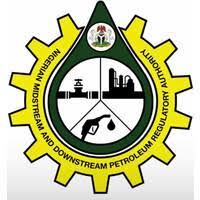Nigeria’s fuel consumption in June 2023 painted a stark picture of the nation’s energy dependence and economic disparities. The Nigerian Midstream and Downstream Petroleum Regulatory Authority (NMDPRA) reported a staggering 1.44 billion liters of Premium Motor Spirit (PMS), commonly known as petrol, distributed across the country. At an average pump price of N900 per liter, this translates to an expenditure of approximately N1.3 trillion, a significant burden on a population grappling with economic challenges. This immense consumption underscores Nigeria’s reliance on petrol, not only for transportation but also for power generation due to the country’s persistent struggles with an unreliable electricity grid. The removal of fuel subsidies two years prior further exacerbated the financial strain on citizens, pushing fuel costs to unprecedented levels.
The distribution of petrol consumption across Nigeria revealed significant regional and state-level variations. Lagos, the nation’s economic hub, unsurprisingly led consumption with 205.7 million liters, followed by Ogun State with 88.7 million liters and the Federal Capital Territory (FCT), Abuja, with 77.5 million liters. This concentration of consumption in urban and industrial centers reflects the higher population density, greater vehicle ownership, and more intense economic activity in these areas. In contrast, states like Jigawa, Ebonyi, Yobe, and Bayelsa recorded significantly lower consumption, highlighting the uneven distribution of economic development and infrastructure across the country.
Regional analysis further emphasized this disparity. The South-West region, encompassing Lagos, Ogun, and Oyo, emerged as the top consumer, accounting for 452.9 million liters, valued at N407.7 billion. The North-Central region followed with 247.4 million liters, while the North-West consumed 230 million liters. The South-South region recorded 224.9 million liters, the North-East consumed 152.8 million liters, and the South-East had the lowest consumption at 132.7 million liters. This regional pattern mirrors the broader economic and demographic trends across Nigeria.
The entry of the Dangote Refinery into the market brought a glimmer of hope, offering some respite from escalating fuel prices. Aliko Dangote, President of the Dangote Group, highlighted that the refinery’s production had contributed to a price reduction, with petrol selling between N815 and N820 per liter. He further emphasized that this price represented a significant discount compared to neighboring West African countries, where petrol prices averaged around $1 (N1,600) per liter. This implied that Nigerians were effectively paying 55% less than their regional counterparts. The Dangote Refinery’s intervention disrupted the previous monopoly held by the Nigerian National Petroleum Company Limited (NNPC), which had been the sole determinant of fuel prices prior to the refinery’s commencement of operations.
The removal of fuel subsidies by President Bola Tinubu in May 2023 triggered a sharp increase in petrol prices, pushing them from an average of N200 per liter to the current levels. The NNPC, previously the sole importer due to the subsidy regime, effectively ceded this role to the Dangote Refinery, the only operational petrol-producing refinery at the time. The initial surge in prices to around N1,200 per liter following the subsidy removal was partially mitigated by subsequent price cuts implemented by the Dangote Refinery, bringing prices down to below N900 per liter. While this reduction provided some relief, it also sparked discontent among fuel marketers who lamented losses.
Despite the price reductions, a segment of the Nigerian population continued to advocate for further decreases, arguing that petrol prices should ideally fall within the N200 to N500 range to effectively combat rising inflation. This sentiment reflects the widespread economic hardship caused by elevated fuel costs, which have ripple effects across various sectors of the economy. Many citizens perceive the current price levels as unsustainable and detrimental to their livelihoods, underscoring the need for a more balanced approach to fuel pricing that considers both market dynamics and the economic well-being of the populace. The ongoing debate surrounding fuel prices highlights the complex interplay between energy policy, economic stability, and social welfare in Nigeria.














